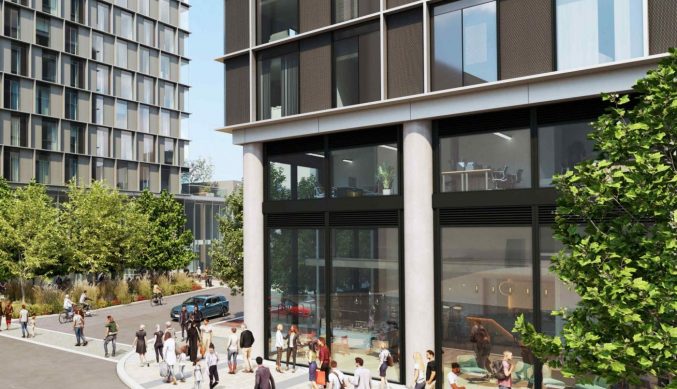House prices dip on stamp duty fears but market remains ‘buoyant’
By David Craik

Property prices inched lower last month as demand faltered ahead of the planned end to the stamp duty holiday on March 31st.
Prices fell 0.2% in March compared to the previous month where they climbed by 0.7%, according to the Nationwide House Price Index. On an annual basis house price growth slowed to 5.7%, down from 6.9% in February. The average price of a property in the UK is now £232,134.
The temporary removal of stamp duty tax on properties below £500,000 launched last July to support a housing market battered by the pandemic, had sent the number of transactions and prices soaring.
It was set to finish on March 31st before Chancellor Rishi Sunak extended the deadline in the Budget to the end of June.
“Given that the wider economy and the labour market has performed better than expected in recent months, the slowdown in March probably reflects a softening of demand ahead of the original end of the stamp duty holiday before the Chancellor announced the extension,” said Robert Gardner, Nationwide’s Chief Economist.
He warned that the longer-term outlook remained highly uncertain and that if the labour market weakens towards the end of the year as policy support is withdrawn, then housing activity is likely to slow, ‘perhaps sharply’.
Guy Harrington, chief executive of residential lender Glenhawk agreed that the figures show cause for concern. “Finally, a dose of reality. It is becoming evident that pent up demand and government stimulus had fuelled house price growth to unsustainable levels,” he said. “However, with an overheated market still set to be a reality until autumn, the correction when it eventually comes is likely to be sharper and more painful because of wider economic deterioration.”
Despite these worries Gardner added that the stamp duty change, furlough scheme extension and a new mortgage guarantee scheme, should keep the sector ‘buoyant’ over the next 6 months.
Anna Clare Harper, chief executive of asset manager SPI Capital, also sees strong fundamentals. ”Reduced stamp duty has not been the only driver of house price growth over the last year. We also have cheap debt as a result of very low interest rates, the release of pent-up supply and demand and desire to improve surroundings amongst existing homeowners,” she said. “These trends are likely to hold up throughout 2021.”
Mark Harris, chief executive of mortgage broker SPF Private Clients, also remains bullish: ’Mortgage rates remain at rock bottom and lenders keen to lend. With first-time buyers, those with small deposits and buyers from overseas returning to the market, improving economic indicators and lending policy broadening – the outlook for the housing market is positive for the rest of 2021.’
This optimism is being best displayed in Northern Ireland, which according to the Index, saw the highest annual growth in house prices in the first quarter of the year with a 7.4% increase. Scotland recorded a 7.2% hike and Wales was up 6.9%.
England saw a 6.4% rise, but this was down from the fourth quarter climb of 6.9%.
The North West was the strongest region with prices up 8.2% year-on-year marking its best performance since 2005. London was the weakest with annual price growth softening to 4.8% from 6.2% in the fourth quarter last year.
Jeremy Leaf, north London estate agent and a former RICS residential chairman, expects London demand to recover. ‘Looking forward, we don’t expect too much change on the ground other than another rapid dash to take advantage of lower stamp duty for the higher-priced properties, particularly in places like London, before the end of June,” he said.
Tomer Aboody, director of property lender MT Finance, also sees the regional bounce continuing at least in the short-term.
‘The shift in buyers’ demands for more space meant London saw the slowest growth. Gardens, communities and easy commutes are increasing demand for the outer regions,” Aboody said. “While money is cheap and jobs are still being saved via the furlough scheme, we have yet to feel the full effect of the pandemic but as, and when, artificial stimulus in the economy come to an end, we can only assume that the job market and economy will suffer. This in turn will impact the housing market. In the meantime, buyers are making hay while the sun shines in spring.’

David Craik is a freelance journalist writing news, feature articles, blogs and guides for national newspapers and magazines. His main areas of interest include finance, property and investments.










You must be logged in to post a comment.